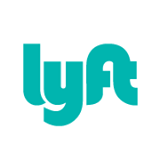Cry havoc, and let slip the lobbyists of, um, lobbying!
After spending months securing a spot on Houston’s roadways, Uber is stepping on the gas in Austin: hiring at least 23 lobbyists and paying them as much as $700,000 to make sure its on-demand ride service gets favorable treatment in the Legislature, according to records with the Texas Ethics Commission.
Uber is the boldest among ride-on-demand competitors that include Lyft and Sidecar, companies selling not only rides but a lifestyle that is heavily online dependent with a willingness to cast off conventions. The company is fighting lawsuits and cease-and-desist orders, piling up fines and exasperating officials as it trumpets a new business model and the so-called sharing economy.
Yet, the app-based companies also are embracing the old-school model of pressure politics and armies of lobbyists. Alongside Uber’s army of lobbyists, Lyft reported four lobbyists on board, committing up to $260,000 for their services.
“We need a lot of bodies to assure that we’reteaching people aboutthe sharing economy as quickly as possible” said Chris Nakutis, Uber’s general manager in Texas and chief strategist in several states.
Uber threatened to pull out of Houston last fall but ultimately complied with city-required procedure such as background checks for drivers. Lyft, however, suspended operations in November in Houston citing regulations that “essentially treat Lyft like a taxi.”
Now Uber is threatening to pull out of San Antonio if the city enforces its new vehicle-for-hire ordinances. Mayor Ivy Taylor declared at least a temporary retreat last week.
The tactic is one of the most extreme from the company’s pressure-politics playbook, as at least 19 states are considering legislation related to operations of the new transportation network companies. Uber, Lyft or both have contracted lobbyists in most of those states, records show.
[…]
In Tampa, two county commissioners seeking rules for new hired-car services became the target of an Uber mass mailing last year featuring a forlorn fellow on the street and this message: “Don’t let politicians and special interests leave you sitting on the curb.”
The commissioners still won re-election and last month joined colleagues on the Hillsborough County Commission in a vote to seek an injunction to shut down Uber and Lyft, which continue to defy a cease-and-desist order.
“They have completely ignored us. They feel like they don’t fall under anybody’s regulations,” complained Kyle Cockream, executive director of the county’s transportation commission and a former police captain who has pressed for more stringent background checks. “This is happening across Florida and in every corner of the country.”
Tampa Mayor Bob Buckhorn has refused to issue tickets to drivers, putting him at odds with the county.
In Eugene, Ore., where Uber has refused to comply with licensing and other requirements, the city began issuing $2,000 a-day fines since December.
In Orlando, new rules covering the app-based services went into effect Feb. 1 despite efforts to dissuade Mayor Buddy Dyer by Uber’s powerhouse Washington lobbying group, an alliance that also represents Facebook and Google.
Good to know that Uber’s respect for the rule of law and the political process remains the same wherever they go. I don’t believe I had heard about Uber contemplating an exit from Houston as Lyft did after our vehicles for hire ordinance was passed. They were certainly all in once the permit process began. I’ve been critical of of San Antonio for the way they handled their vehicles for hire update, and I have long believed that cities should find a way to accommodate these new entrants in the market, but that doesn’t change my negative feelings about Uber the company. Until and unless they change how they do business – and fire a few of the people that are repeat bad actors – I have no plans to ever download their app. (There are other issues of concern as well; perhaps they’re hoping to fend off any bills that would forbid or restrict their “surge pricing” model.)
Be that as it may, when I read this story I wished it had been written by a Texas writer, because I’d love to know what Uber and Lyft’s specific goals for this legislative session are. On Friday, I received an answer to that question.
An East Texas lawmaker has filed a bill that would undo efforts by several cities to regulate vehicle-for-hire apps Uber and Lyft and transfer regulation of the services to the state Department of Motor Vehicles.
House Bill 2440 from state Rep. Chris Paddie, R-Marshall, would grant firms like Uber and Lyft statewide operating permits if they pay an annual $5,000 fee and follow various rules. In some cases, such as background checks conducted on drivers, Paddie’s bill would be less rigorous than ordinances approved in some Texas cities.
Paddie described his proposal as allowing “innovative technology companies such as Uber and Lyft to operate under predictable, sensible statewide regulations.”
“As Republicans, we talk a lot about free market principles,” Paddie wrote Friday on Facebook. “This bill enacts those principles and will ultimately empower you, the consumer.”
[…]
“We applaud Rep. Paddie for introducing a statewide bill that protects riders, increases transportation options, expands economic opportunity and ensures Uber has a permanent home in Texas,” Uber spokeswoman Debbee Hancock said.
Given the antipathy to local control on display so far, this should not come as a surprise. You know that I disapprove of the San Antonio vehicles for hire ordinance that has made Uber and Lyft leave town, but I think if that’s what the San Antonio City Council wants to do, it’s within their discretion to do so. The voters there will get to register their opinion on the matter in a few weeks. The capacity of Republicans in Austin to kick dirt on local control continues to amaze me. We’ll see what comes of this.


